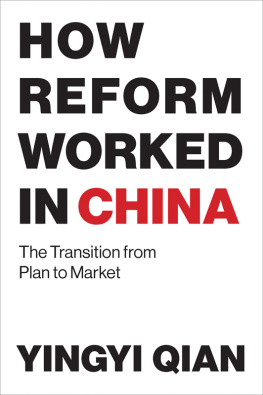First published 2011 by Ashgate Publishing
Published 2016 by Routledge
2 Park Square, Milton Park, Abingdon, Oxon OX14 4RN
711 Third Avenue, New York, NY 10017, USA
Routledge is an imprint of the Taylor & Francis Group, an informa business
Copyright Perry Keller 2011. For copyright of individual articles please refer to the Acknowledgements.
All rights reserved. No part of this book may be reprinted or reproduced or utilised in any form or by any electronic, mechanical, or other means, now known or hereafter invented, including photocopying and recording, or in any information storage or retrieval system, without permission in writing from the publishers.
Notice:
Product or corporate names may be trademarks or registered trademarks, and are used only for identification and explanation without intent to infringe.
Wherever possible, these reprints are made from a copy of the original printing, but these can themselves be of very variable quality. Whilst the publisher has made every effort to ensure the quality of the reprint, some variability may inevitably remain.
British Library Cataloguing in Publication Data
Law and the market economy in China. (The library of essays on Chinese law)
1. Commercial lawChina.
I. Series II. Keller, Perry.
346.5107dc22
Library of Congress Control Number: 2011925051
ISBN 9780754628613 (hbk)
The editor and publishers wish to thank the following for permission to use copyright material.
American Bar Association for the essays: Bruce M. Owen, Su Sun and Wentong Zheng (2008), Chinas Competition Policy Reforms: The Anti-Monopoly Law and Beyond, Antitrust Law Journal, , pp. 23165; Xueguo Wen (2008), Market Dominance by Chinas Public Utility Enterprises, Antitrust Law Journal, , pp. 15171.
American Journal of Comparative Law for the essay: Xin He (2009), Enforcing Commercial Judgments in the Pearl River Delta of China, American Journal of Comparative Law, , pp. 41955.
Cambridge University Press for the essays: James V. Feinerman (2007), New Hope for Corporate Governance in China?, China Quarterly, , pp. 590612. Copyright 2007 The China Quarterly; Julia Ya Qin (2007), Trade, Investment and Beyond: The Impact of WTO Accession on Chinas Legal System, China Quarterly, , pp. 72041. Copyright 2007 The China Quarterly.
Columbia Journal of Asian Law for the essay: Donald C. Clarke (2005), How Do We Know When an Enterprise Exists? Unanswerable Questions and Legal Polycentricity in China, Columbia Journal of Asian Law, , pp. 5071.
Fordham International Law Journal for the essay: Donald P. Harris (2008), The Honeymoon is Over: The U.S.-China WTO Intellectual Property Complaint, Fordham International Law Journal, , pp. 96187.
John Wiley and Sons for the essay: Sida Liu (2008), Globalization as Boundary-Blurring: International and Local Law Firms in Chinas Corporate Law Market, Law and Society Review, , pp. 771804. Copyright 2008 Law and Society Association.
Oxford University Press for the essays: Guanghua Yu and Hao Zhang (2008), Adaptive Efficiency and Financial Development in China: The Role of Contracts and Contractual Enforcement, Journal of International Economic Law, , pp. 45994. Copyright 2008 Oxford University Press; Daniel C. Crosby (2008), Banking on Chinas WTO Commitments: Same Bed, Different Dreams in Chinas Financial Services Sector, Journal of International Economic Law, , pp. 75105. Copyright 2008 Oxford University Press; Ping Wang (2009), Chinas Accession to the WTO Government Procurement AgreementChallenges and the Way Forward, Journal of International Economic Law, , pp. 663706. Copyright 2009 Oxford University Press.
Virginia Journal of International Law Association for the essay: Salil K. Mehra and Meng Yanbei (2008), Against Antitrust Functionalism: Reconsidering Chinas Antimonopoly Law, Virginia Journal of International Law, , pp. 379430.
Yuhong Zhao (2007), Trade and Environment: Challenges after Chinas WTO Accession, Columbia Journal of Environmental Law, , pp. 4197. Copyright 2007 Yuhong Zhao.
Every effort has been made to trace all the copyright holders, but if any have been inadvertently overlooked the publishers will be pleased to make the necessary arrangement at the first opportunity.
In 1978, the Chinese Communist Party embarked on a programme of economic reform that would eventually transform not only Chinas economy but that of the world. As part of this massive effort to wrench China out of poverty by liberalizing its planned economy and opening the country to foreign trade and investment, the Party also began to construct a national legal system. Building on the remains of the socialist legal institutions and laws swept away in the Cultural Revolution as well as the Party-states own well developed administrative methods, the Chinese government began to introduce the laws and regulations deemed necessary to its goals of economic reform and social stability.
More than thirty years on, Chinas legal system boasts not only a constitution and a solid array of primary legislation, but also a dense cascade of national and regional regulatory instruments. The central government has gradually enacted legislation in all major fields of law, including critically important laws on property rights, contracts and tort liability. It has also adopted broad amendments and issued detailed interpretations for many of these laws as circumstances and policies have changed through an unprecedented economic and social transformation. These measures include recurring efforts to reform the textual language and application of the Criminal Law and the Criminal Procedure Law, which have often been the subject of domestic and foreign criticism. The Communist Party has also countenanced the creation of legal rights that individuals may exercise against state authorities to claim redress for wrongful acts by state personnel as well as legal duties requiring state authorities to redress or compensate such acts. In addition, the legal reform project has fostered the rapid growth of legislative, judicial, regulatory and other legal institutions. These not only include a national court system, but also a burgeoning legal profession, which has gradually found a role in complex commercial transactions, disputes and other civil matters. In several decades, China has thus accomplished, in terms of formal laws and institutions, what western states took centuries to achieve; albeit accomplished on the back of a resilient system of public administration directed by a ruling party well experienced in the exercise of power.
The renovation of Chinas legal system has however also needed to accommodate the Communist Partys monopoly over political power, control of the use of coercive force and management of economic and social relationships. Despite a loosening of its grip on personal life in recent years, the Party still reaches into almost every organized group or activity in China. It is consequently a system of government that is innately incompatible with a liberal democratic conception of the rule of law. Indeed, the more pressing question is whether government under the Chinese Communist Party is compatible with any concept of the rule of law. The most blatant incompatibilities include, for example, the use of special detention procedures and facilities for Party members suspected of wrong doing that are entirely outside the states rules concerning criminal justice or administrative sanction. More generally, the Partys discretionary use of power and preference for secrecy is reflected in the tendencies of Chinese law towards vague statutory language and weak procedural rights.







